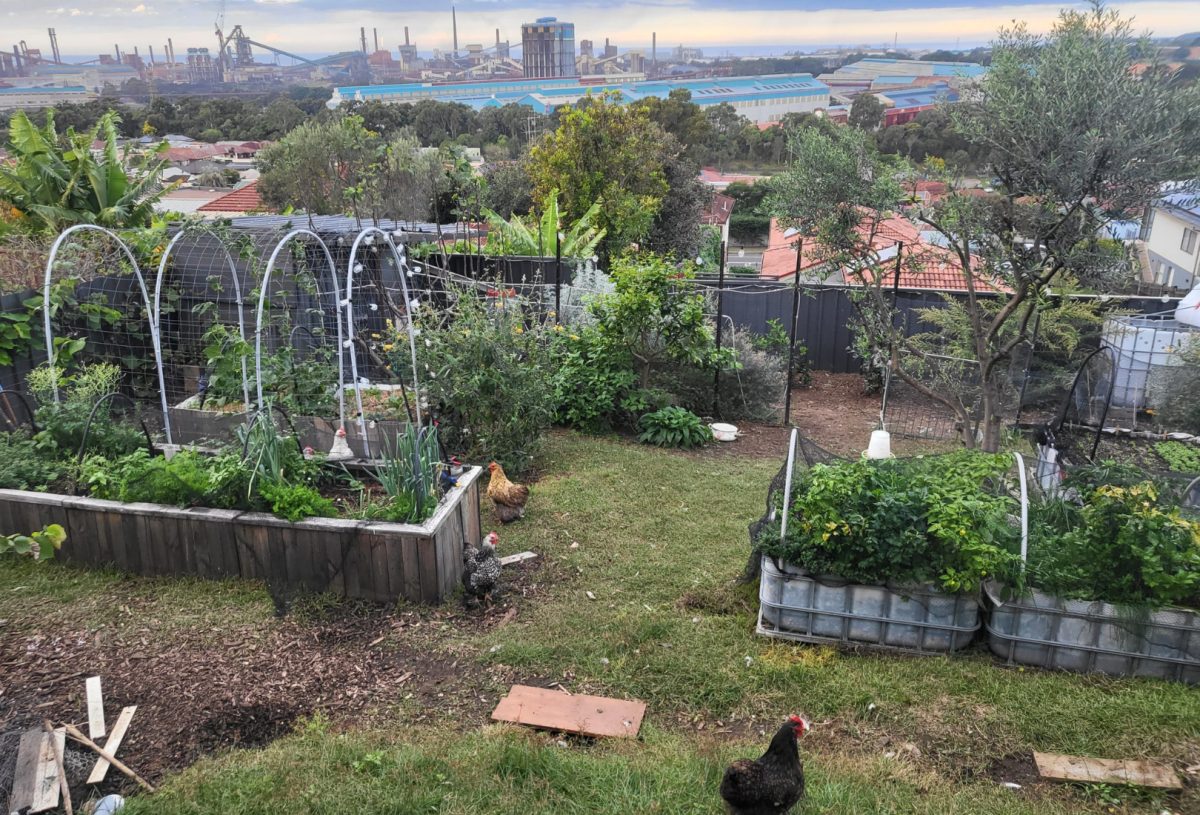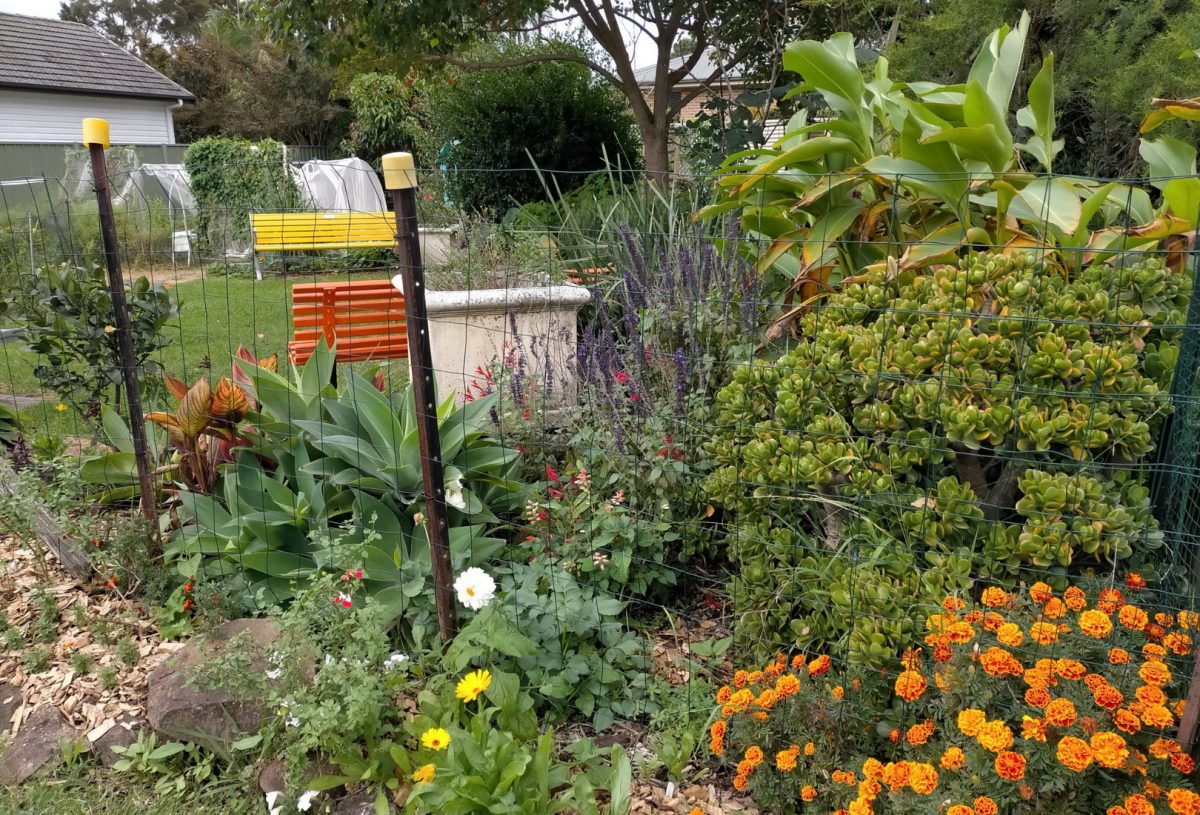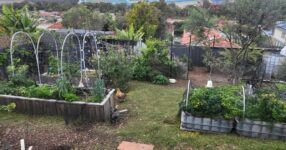
Cringila resident Zoe King will open up her wicking bed garden. Photos: Supplied.
After the success of its inaugural event last year, Illawarra Edible Garden Trail is expanding beyond the northern suburbs to include more than 30 gardens and incorporate a carpool initiative to reduce emissions in November.
Hosted by Food Fairness Illawarra, last year’s trail saw 18 homes, schools and community gardens open up to 300 ticketholders, but this year will take in the entire Wollongong municipality with more than 30 edible gardens open between Helensburgh to Windang and Dapto.
Trail coordinator Anna Jane Linke said a variety of sunny and shaded backyard, verge and balcony gardens, school garden plots and community gardens would be part of the event from 9-10 November, providing visitors the opportunity to see different garden styles and situations.
Anna Jane said the idea of the trail was to encourage new and experienced food growers to visit other gardens and get inspired with ideas and knowledge on how to grow food suited to the Illawarra climate, soils and topography.
“This year we’ve teamed up with the local crop swap coordinators from Otford, Bulli, Unanderra and Port Kembla to link the community to ongoing support,” she said.
“We’re also setting up a carpool app so people can connect, reduce emissions and share the cost of getting around to the gardens.”
Claudia Walters from trail sponsor Gilly’s Kitchen Garden in Otford, which will also be part of the trail, said the weekend-long event was an opportunity to have a chin-wag with a neighbour about what grows well in their garden and build lasting connections.
“It’s about connecting people in local neighbourhoods so they can share their knowledge, swap some produce and build food security across the Illawarra,” Claudia said.

Community garden Bally’s Patch at Balgownie will be among the gardens open.
To attend, people need to register and purchase a ticket by visiting the Food Fairness website and collect their wristband and a map on the day.
A ticket will give them access to all the gardens for the self-guided trail across the weekend, but visitors will need to plan carefully if they want to see them all, with some gardens only open for one of the two days.
Among the gardens are Otford Public School, which grows a variety of herbs, vegetables, flowers and dwarf fruit trees in a shady environment; and Imogen Ross’ unusual public access garden at Austinmer built on the verge of railway lands and council roads.
Community garden Bally’s Patch at Balgownie, now in its 11th year, includes communal no dig beds and private allotments along with a community library; and first-time inclusion Zoe King from Cringila has a wicking bed garden using recycled materials which grow a range of annuals and perennials.
Healthy Cities CEO Kelly Andrews said localised food production built resilience because it reduced reliance on the supply chain, optimised land use, improved affordability and increased community connection.
Kelly said backyard growers also gained access to in-season fruit and vegetables, which had higher nutrition, were fresher and tastier, and cheaper because it required less travel and less refrigeration.
“The escarpment creates many different environments to grow food in and this weekend is all about teaching each other how to start growing something or to learn how to grow more with your neighbours,” she said.
Food Fairness Illawarra has released early bird tickets, which are on sale until 13 September for the Illawarra Edible Garden Trail on 9-10 November from 10 am to 3 pm. Adult (17+) tickets are $20 and concession is $10. From 14 September, tickets will be $25 for adults and $15 for concession.
Buy tickets and view garden profiles on the Food Fairness Illawarra website.




